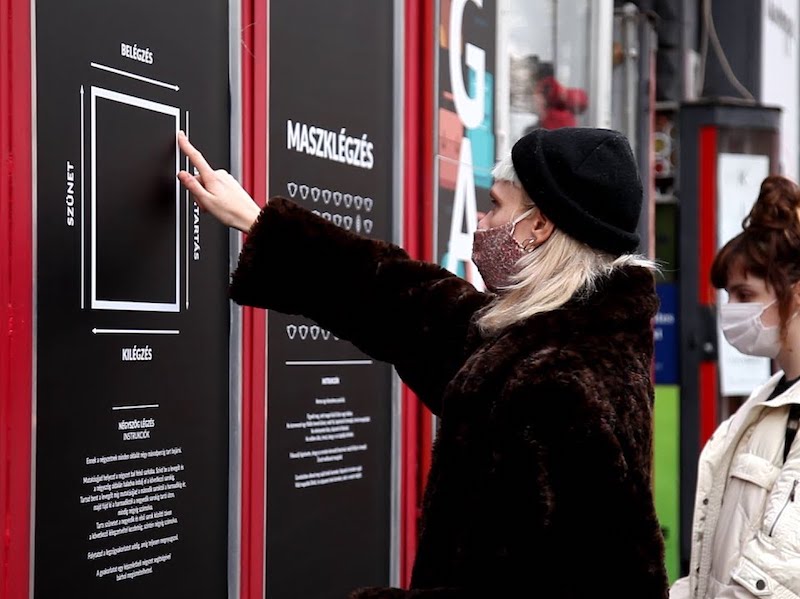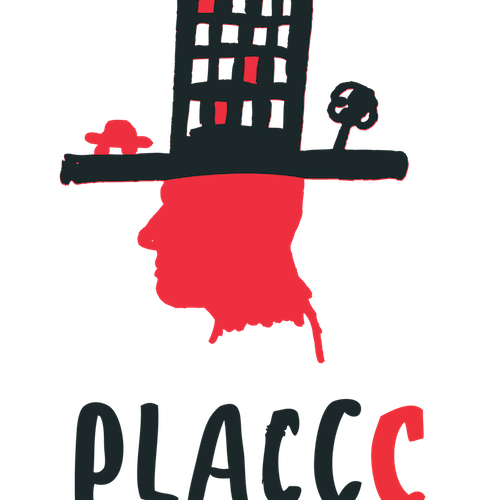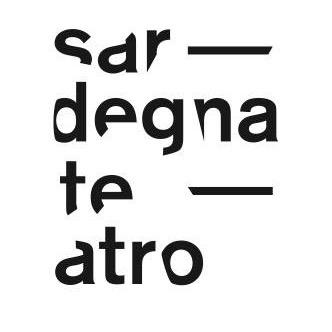Designated Breathing Zone
A project lead by Eva Bubla within the (UN)COMMON SPACES project
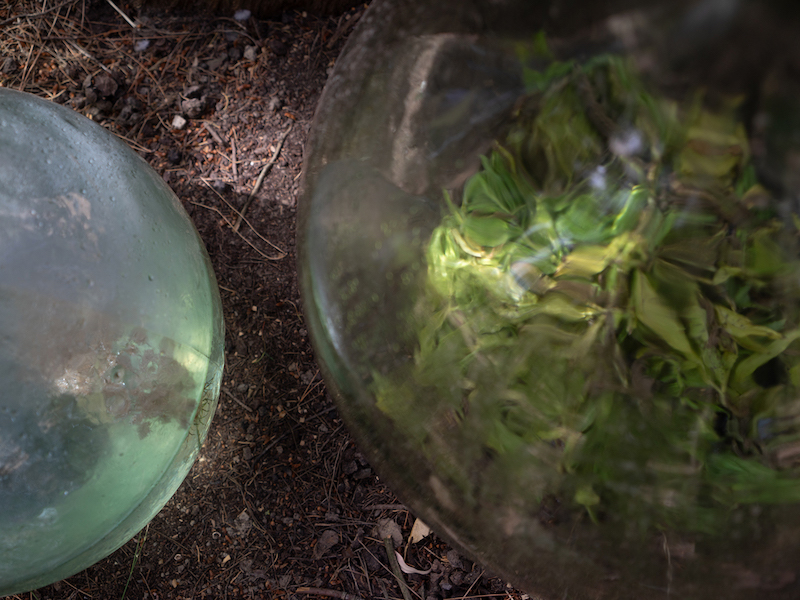
Inhale. Exhale.
Take a deep breath. Hold. Breathe out. Rest.
Most of the time, our muscles move automatically to direct air into and out of our lungs, to facilitate breathing. Other times we consciously focus on these movements in order to relax, meditate, or reach out for air when we have run out of it. Being aware of our breathing has crucial benefits both physically and mentally, especially in a time when it is put at risk due to respiratory diseases caused by a threatening level of air pollution or viruses such as covid-19.
Designated Breathing Zone (2019) aims to raise awareness on the effect of human activities as well as the importance of green areas and plants in tackling pollution levels. Inspired by a 1989 NASA report which researched and tested indoor plants that are most effective in purifying indoor air, the project uses the Sansevieria plant to critically reflect on the topic of air pollution, the effect of human activities, and the importance of plants in our ecosystem. The installation plays with the idea of a dystopian future, and using a mask, invites the audience to inhale the air ventilated from an incubated plant modul.
Designating Breathing Zone: Public Breathing Practices (2021) is a collection of emotional self-regulation and relaxation techniques: practical physical-mental exercises that make it easier to breathe, to (re)connect to our environment, and to create a safe, calm emotional zone, even in unpredictable times.
Designated Breathing Zone developed for Giornate del Respiro 2021 (Sardegna Teatro) is a place for introspection, an intimate, walkable space with a ceiling of indigenous plants, descending in a way that people can walk into, discover and disappear in plants. The installation is accompanied by a series of giant perfume bottles incubating local medicinal plants and a unique essential oil prepared together with the ladies of local association Rimettiamo Radici. Beyond their pleasant scent, these plants also stand as agents of local ecological knowledge.
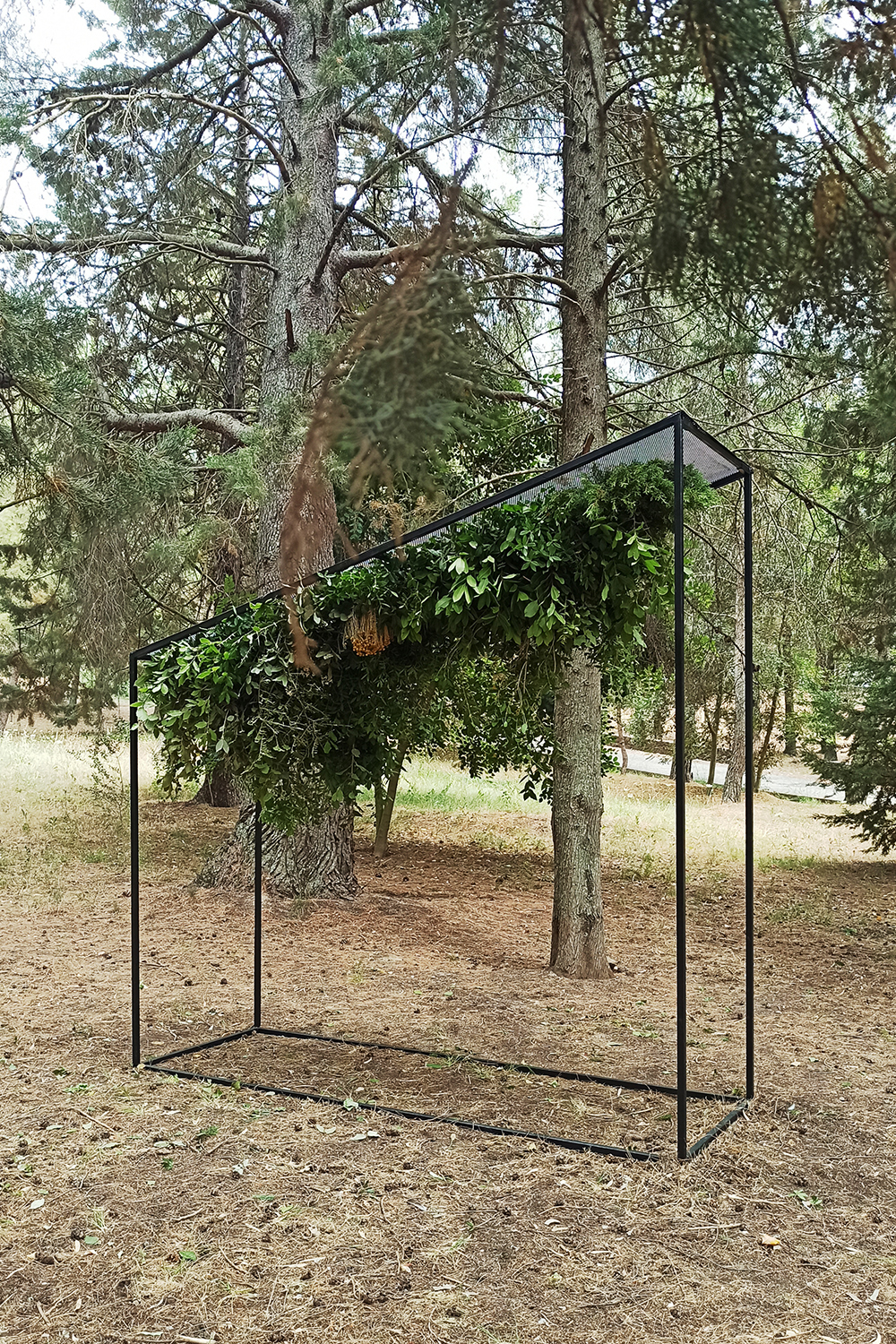 | 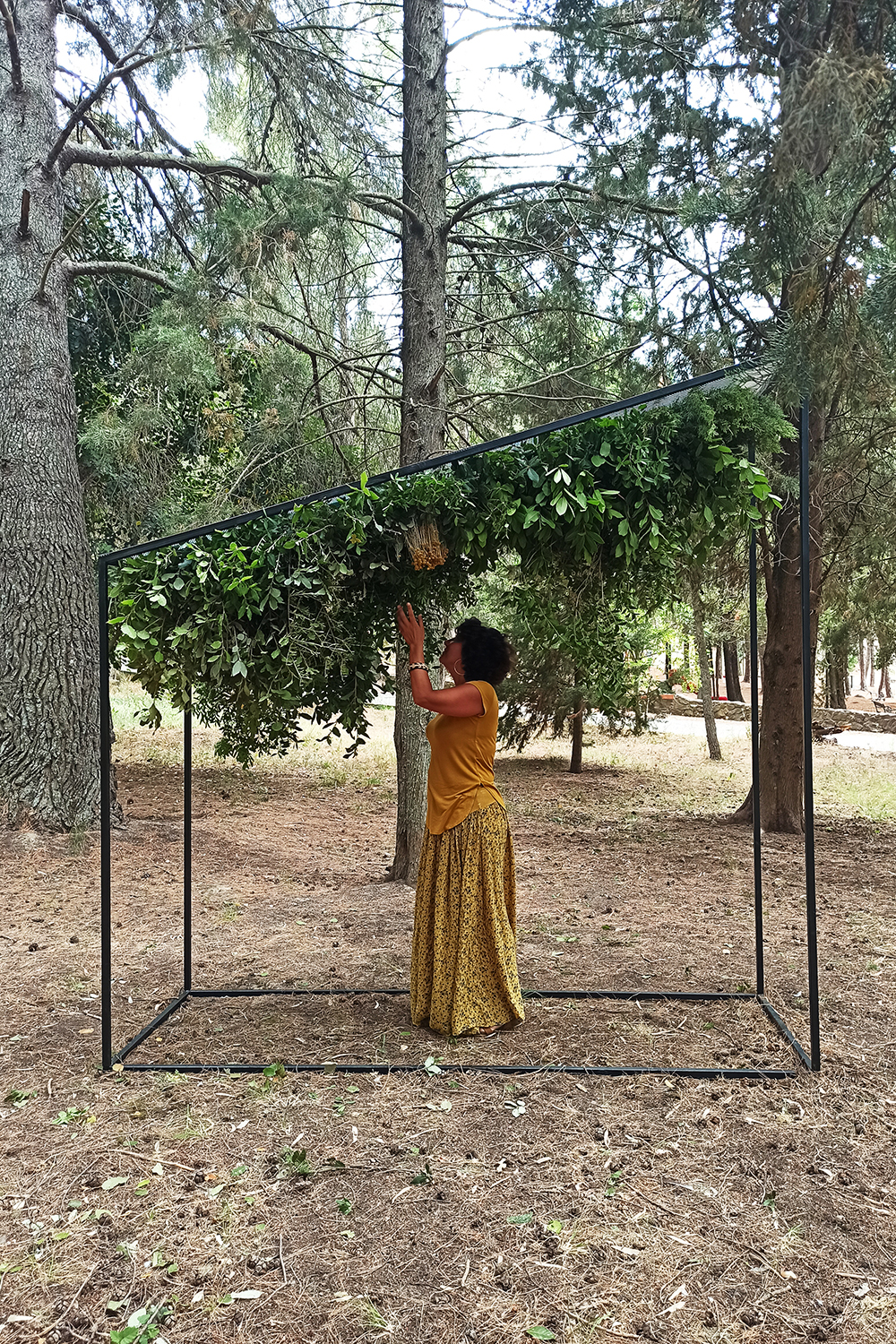 | 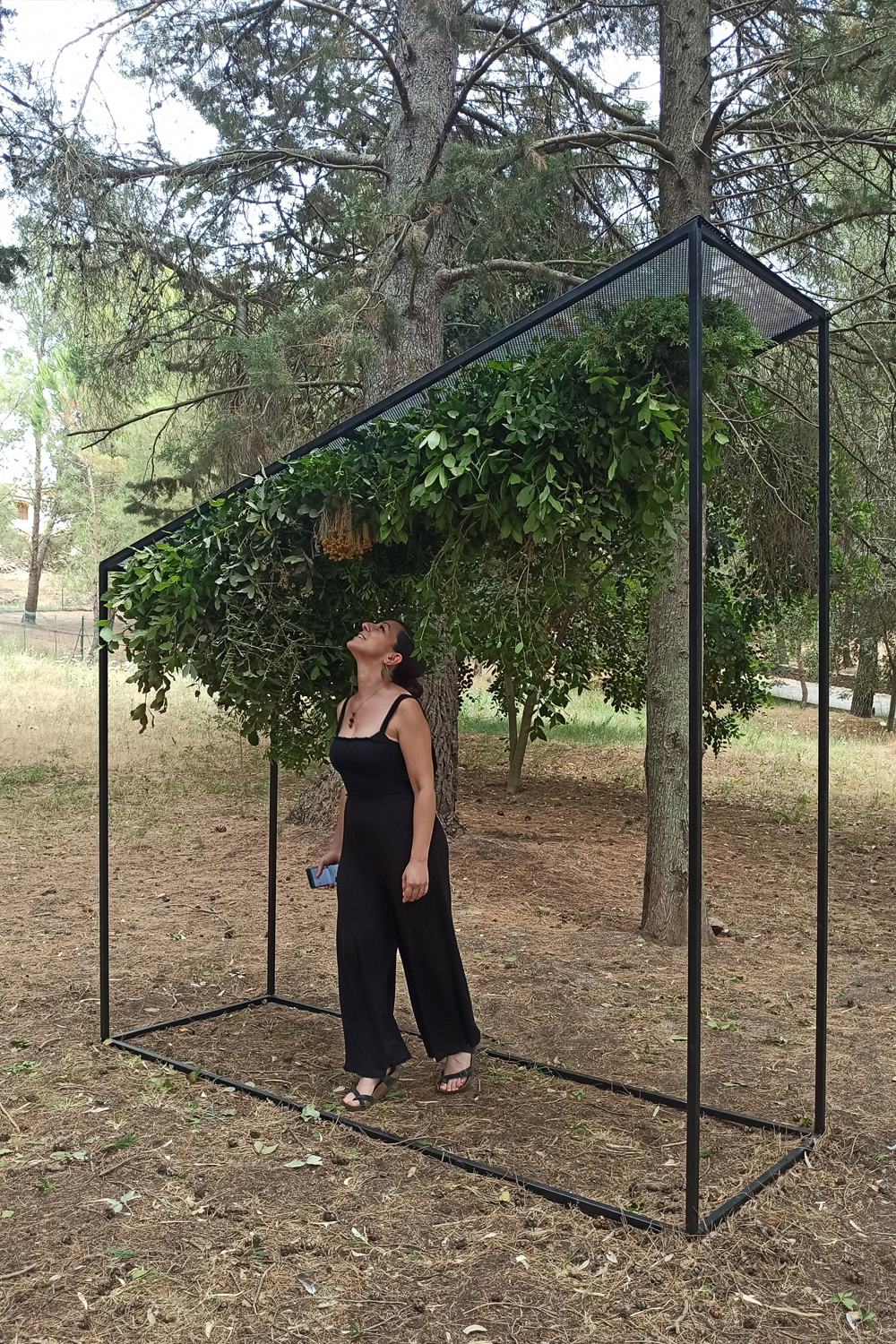 | 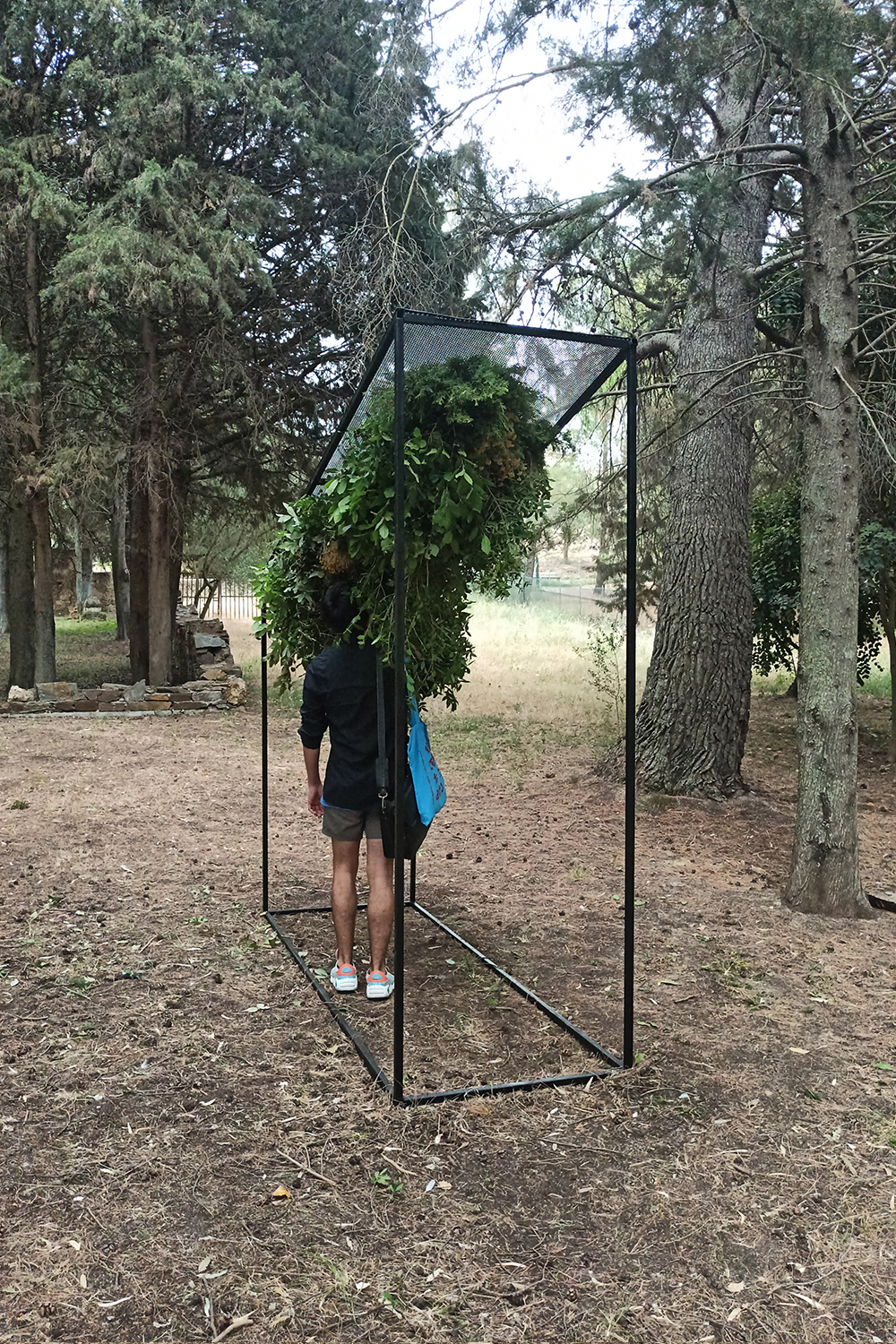 |
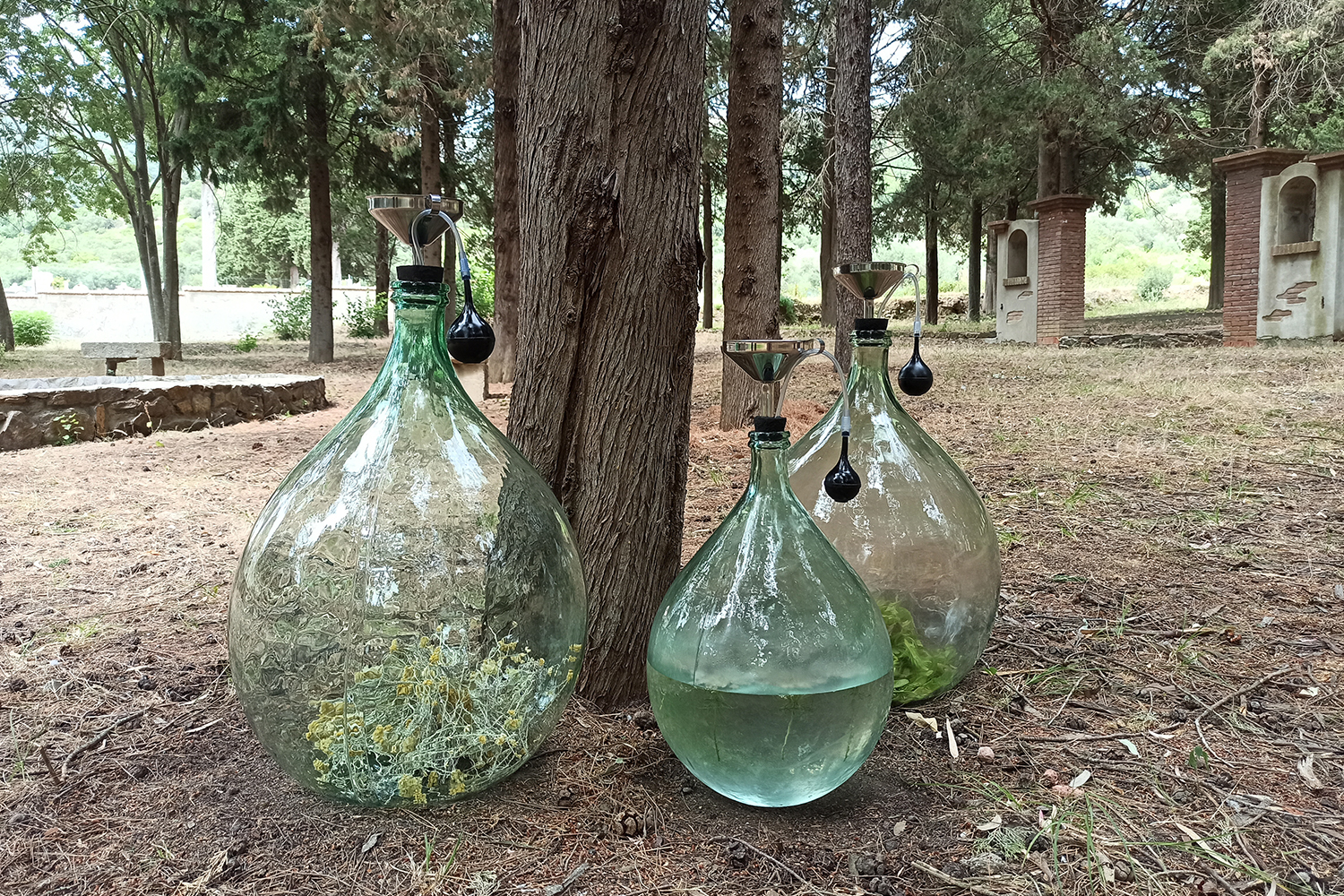 | 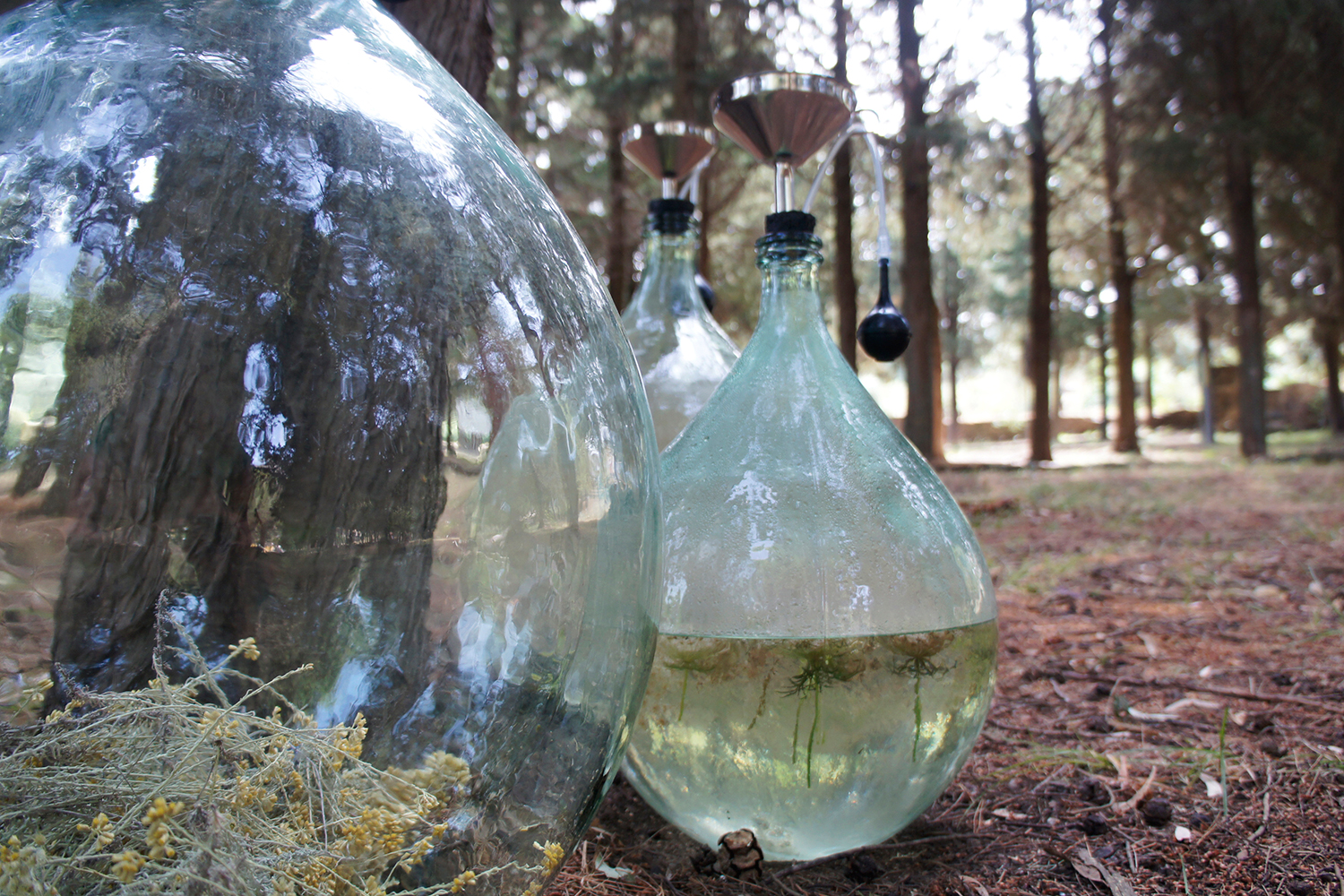 | 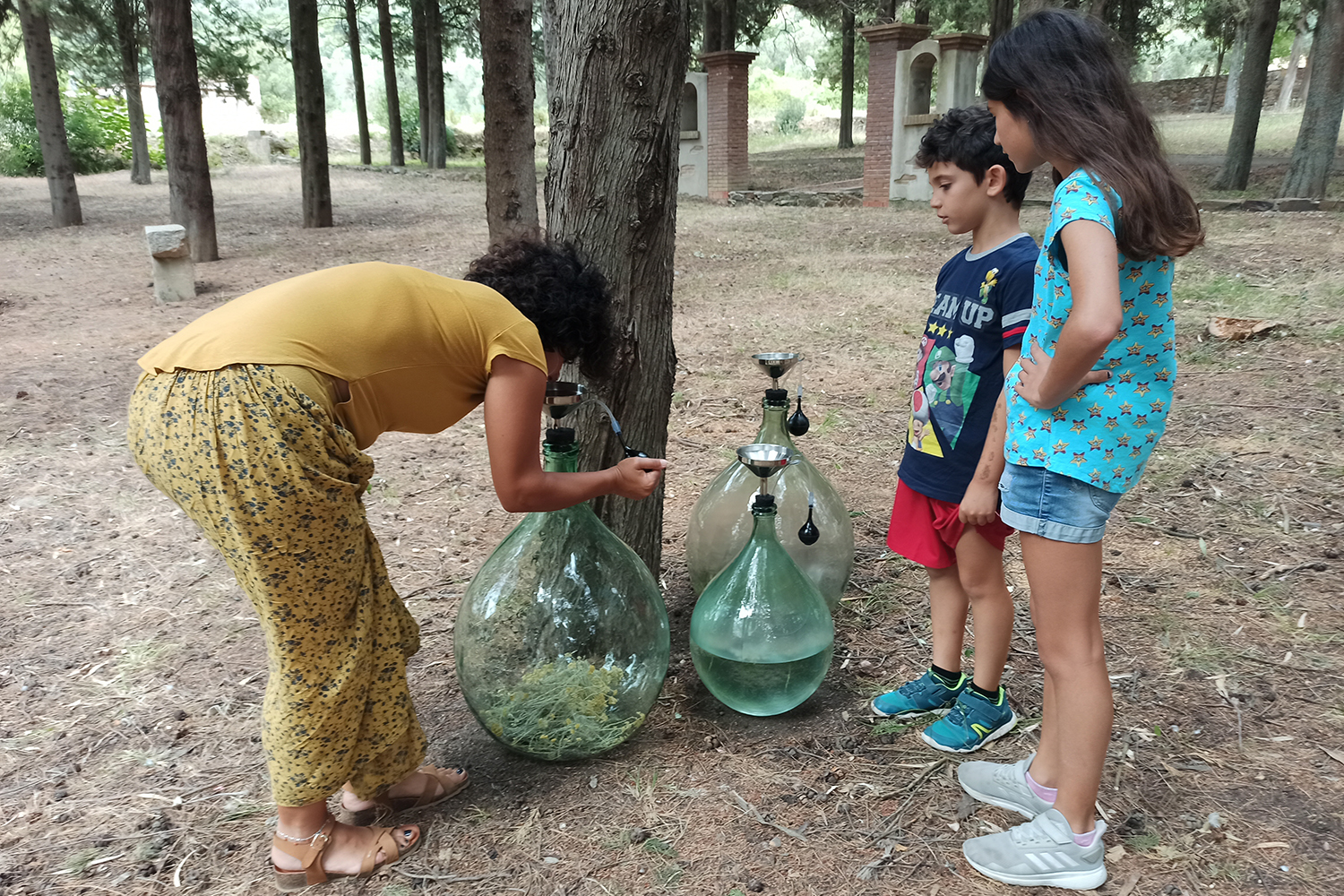 | 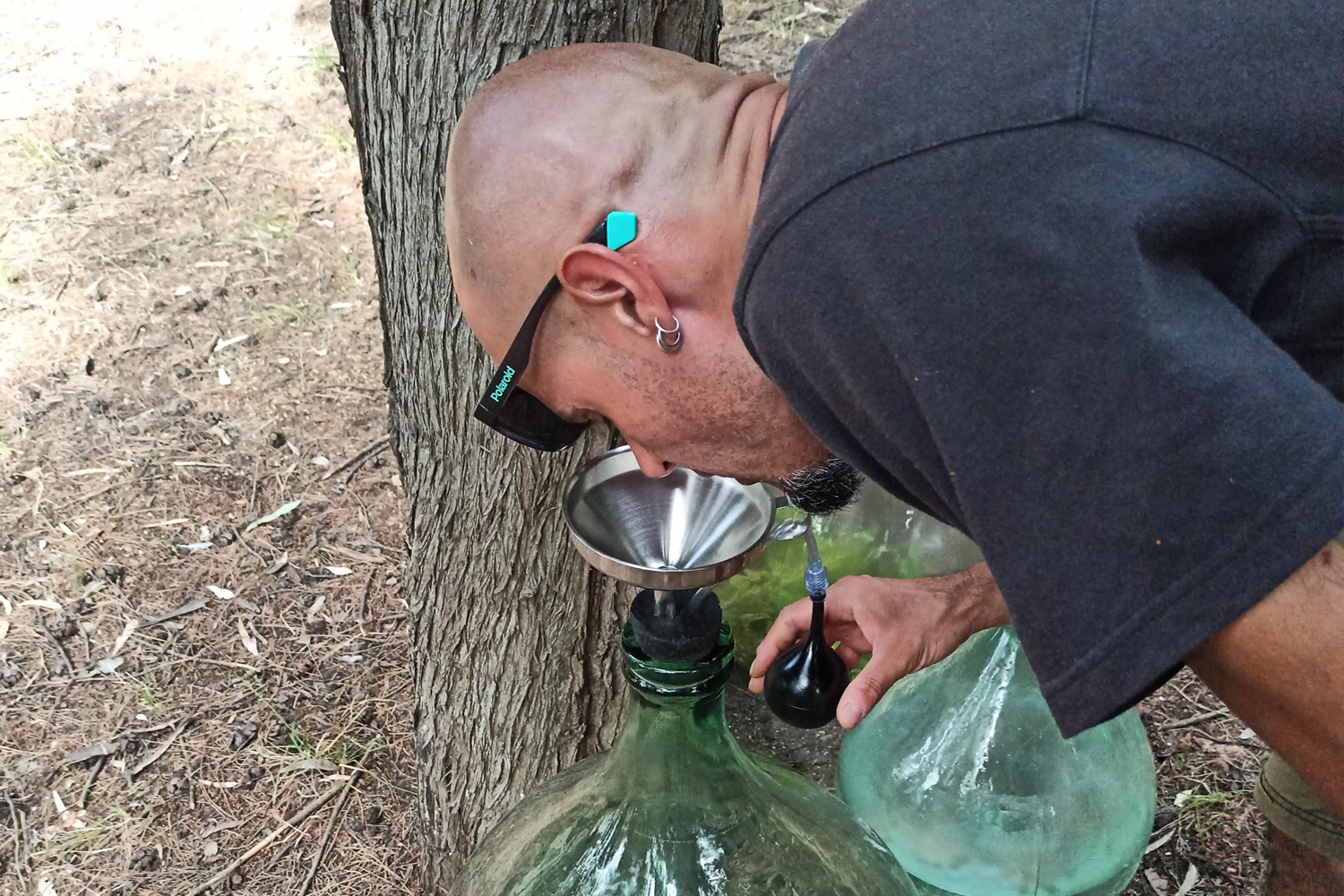 |
